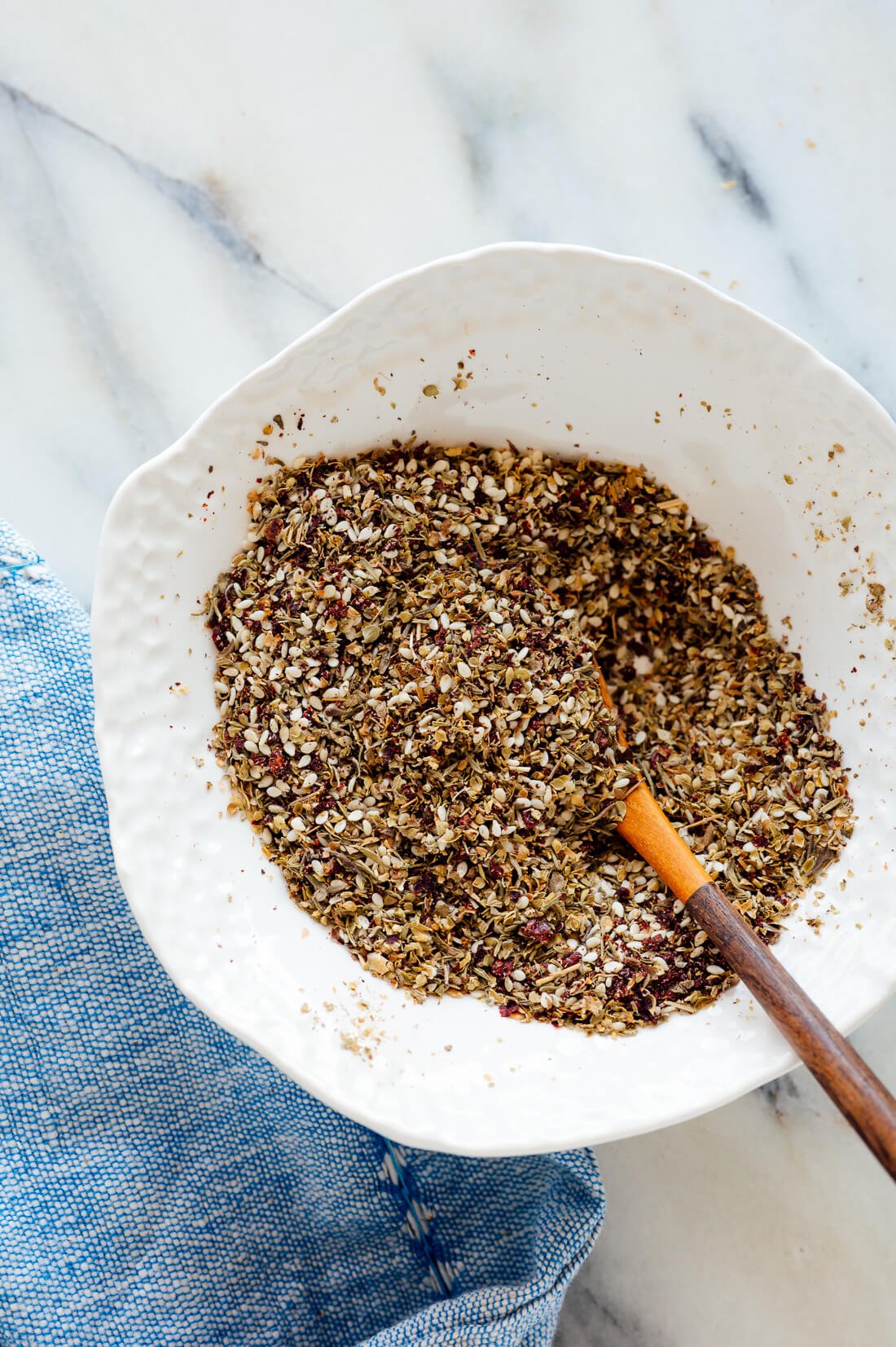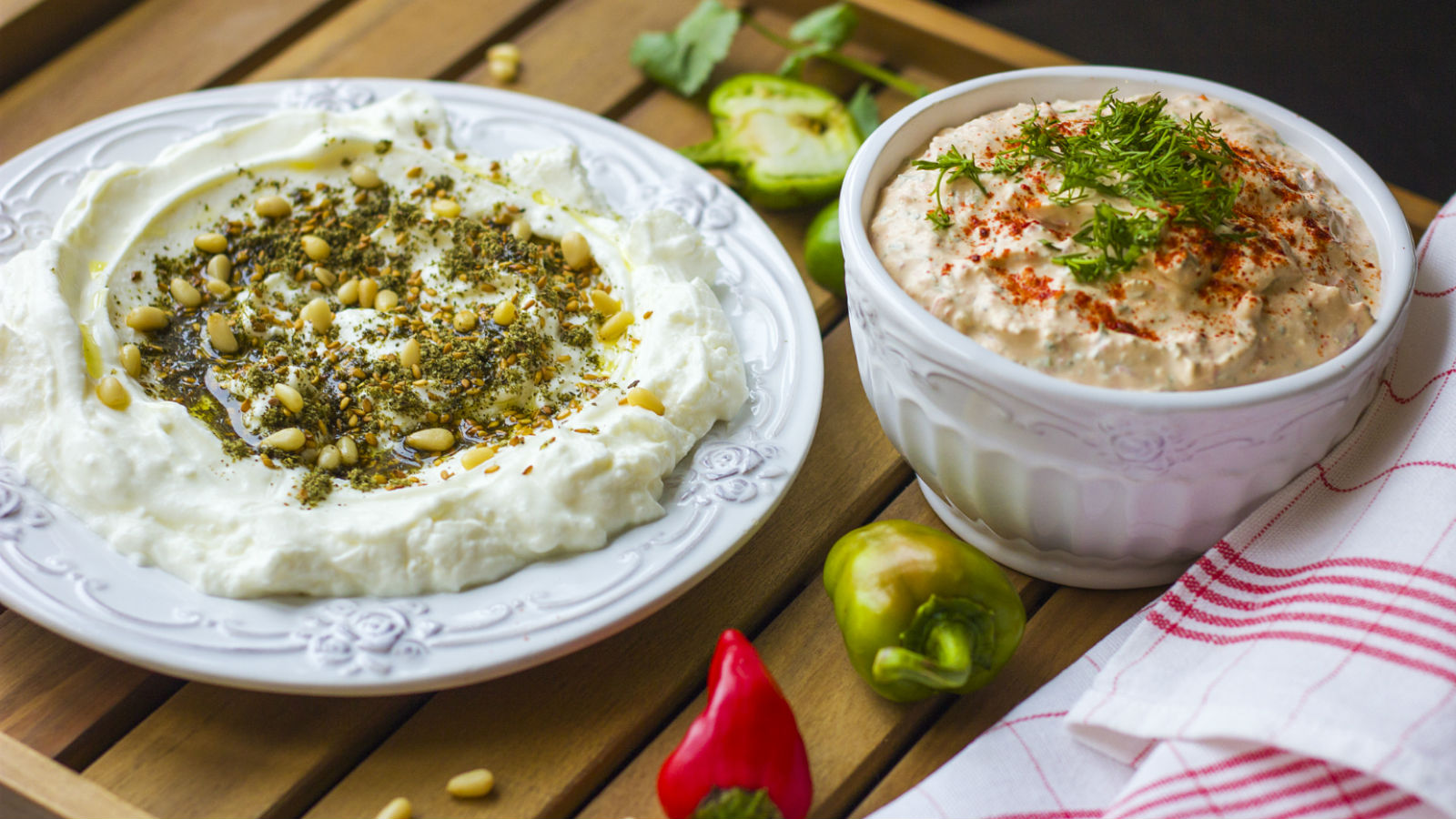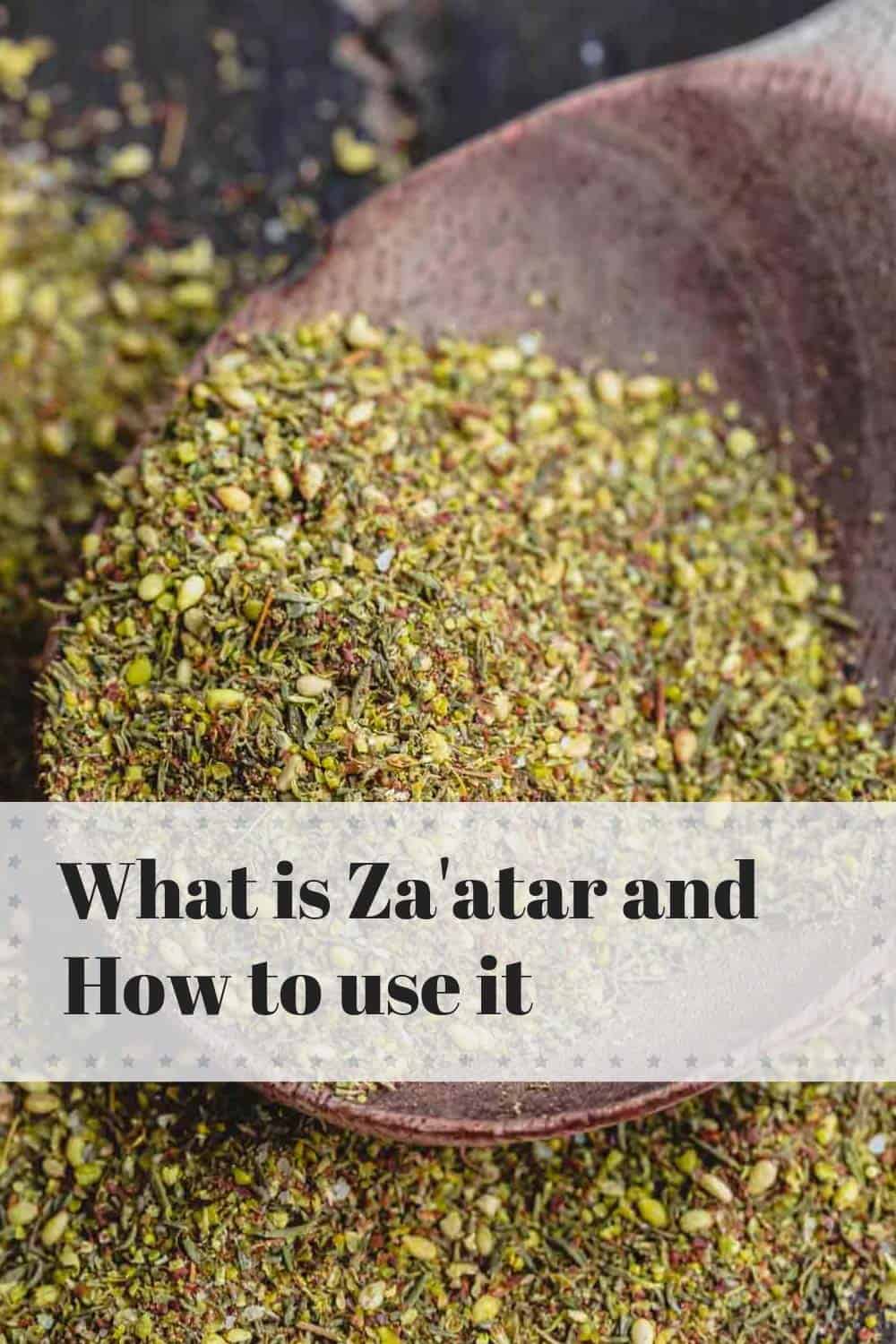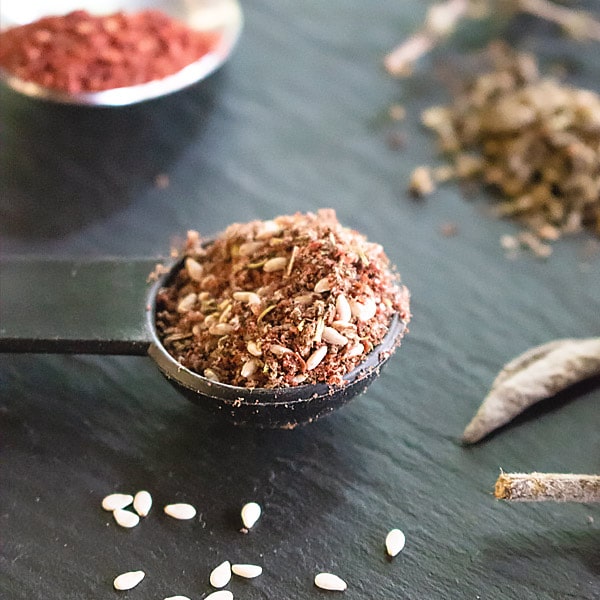Zaatar
za'atar, زعتر
Za'atar[a] is a Levantine culinary herb or family of herbs. It is also the name of a spice mixture that includes the herb along with toasted sesame seeds, dried sumac, often salt, and other spices. As a family of related Levantine herbs, it contains plants from the genera Origanum (oregano), Calamintha (basil thyme), Thymus (typically Thymus vulgaris, i.e., thyme), and Satureja (savory) plants. The name za'atar alone most properly applies to Origanum syriacum, considered in biblical scholarship to be the ezov of the Hebrew Bible, often translated as hyssop but distinct from modern Hyssopus officinalis. Used in Levantine cuisine, both the herb and spice mixture are popular throughout the Mediterranean region of the Middle East.
Source: Wikipedia

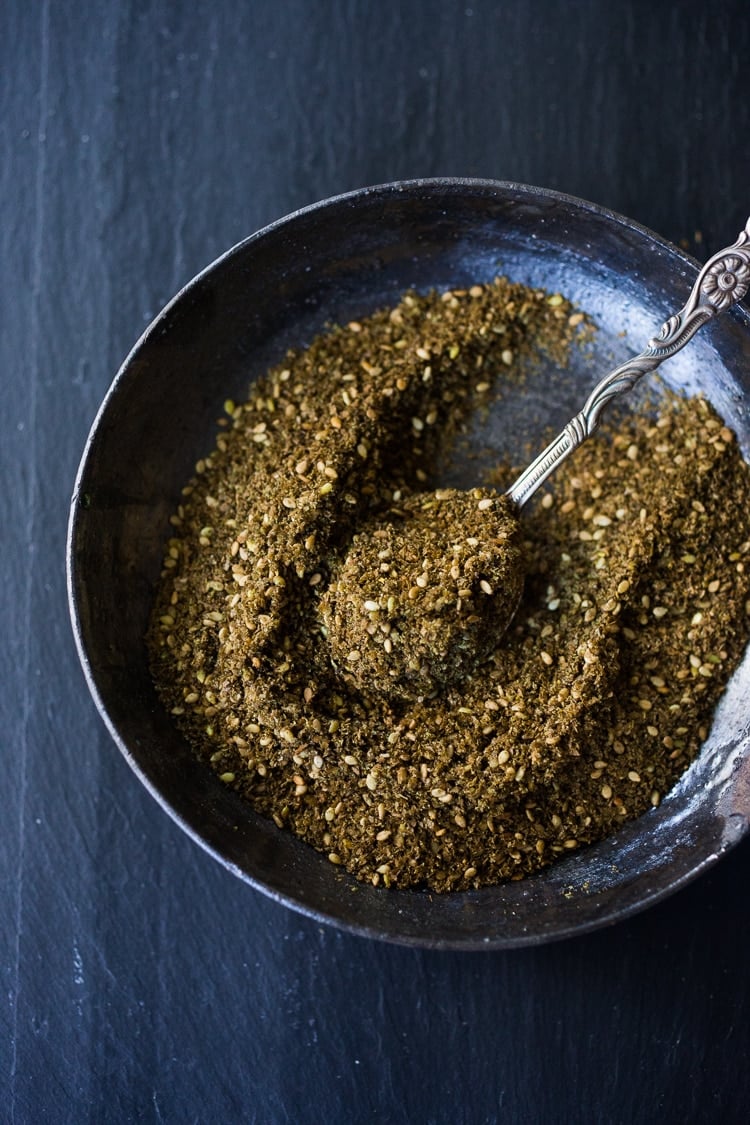
:max_bytes(150000):strip_icc()/zaatar-middle-eastern-spice-mixture-2355844-04-1-fe0d38a057184277a20300cb51c3543c.jpg)
